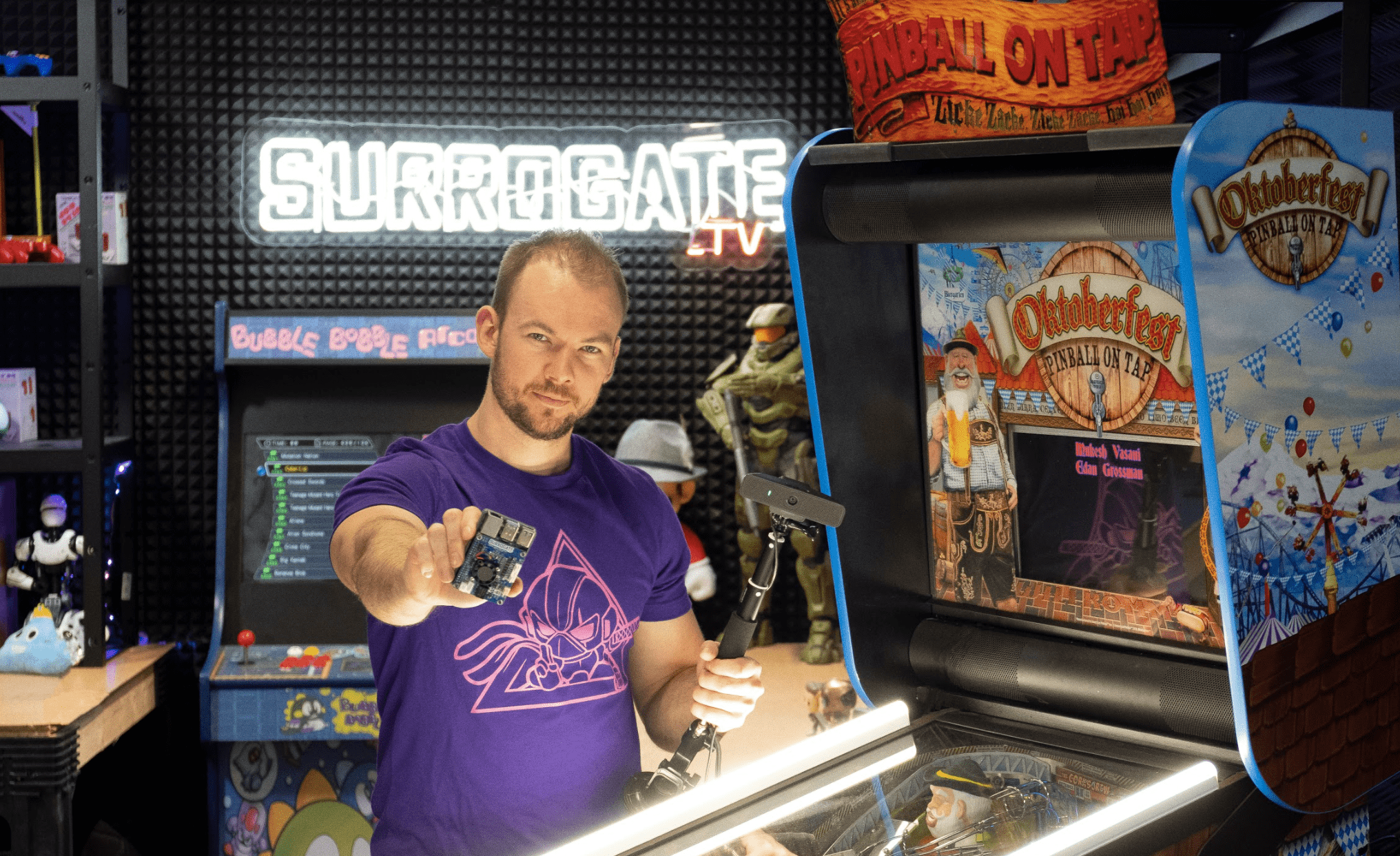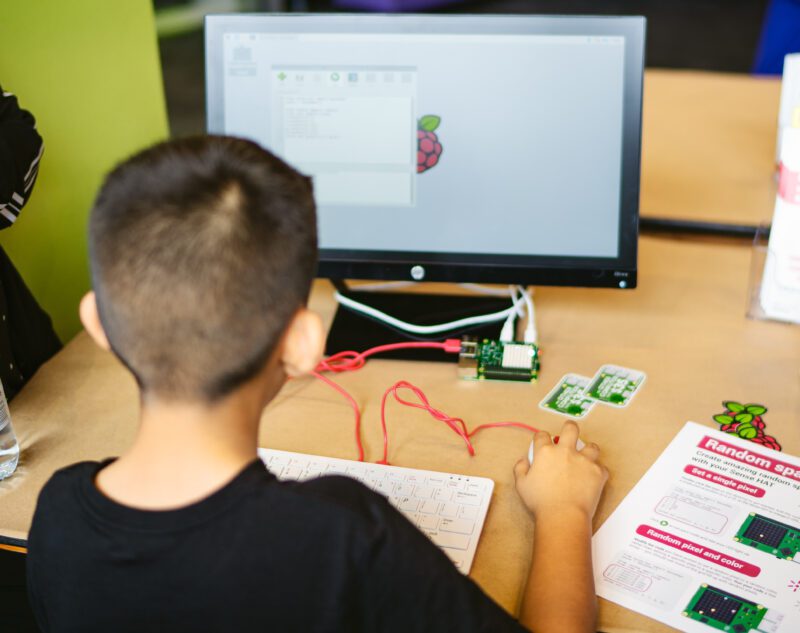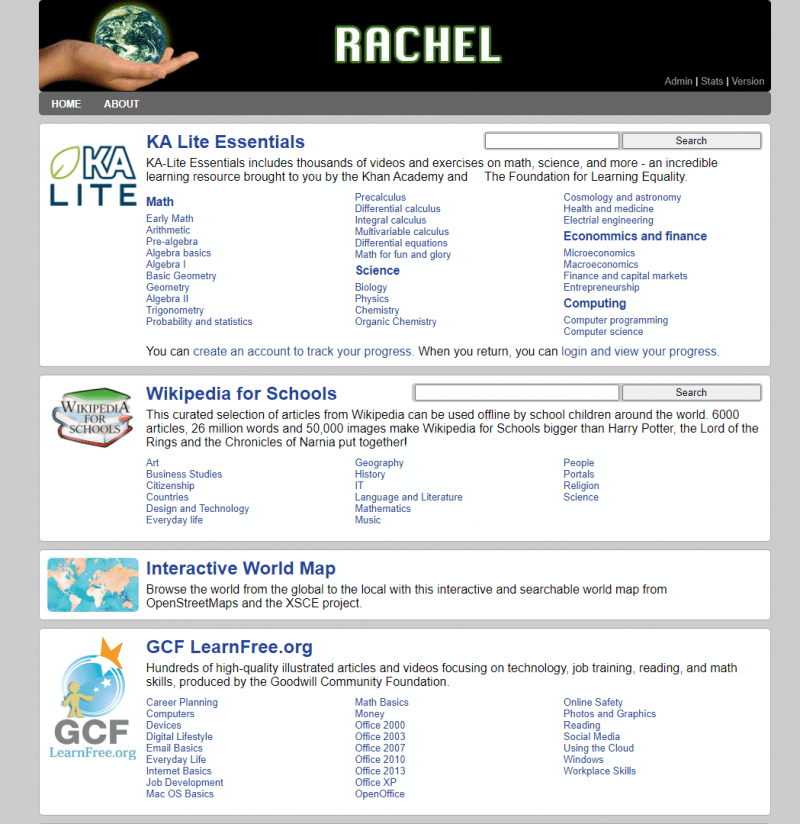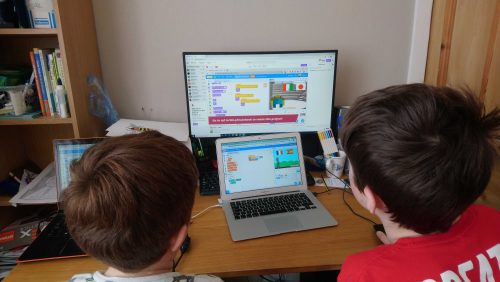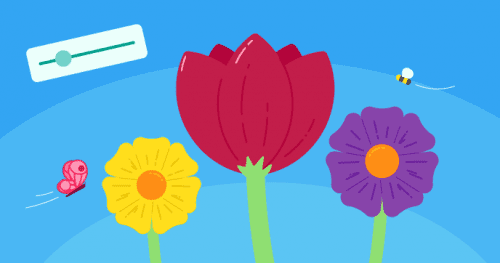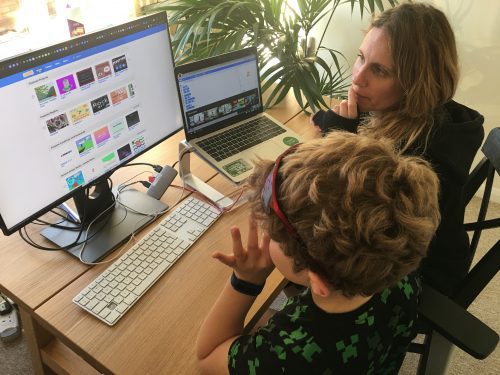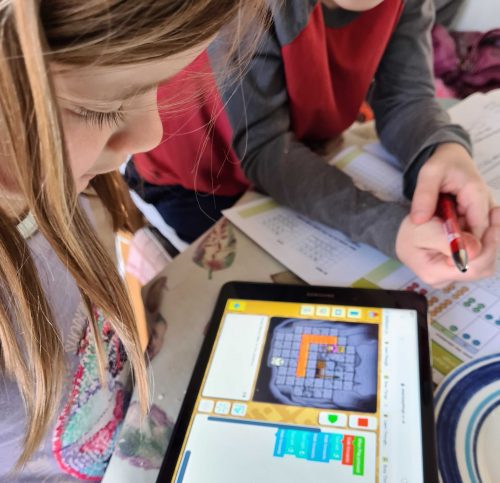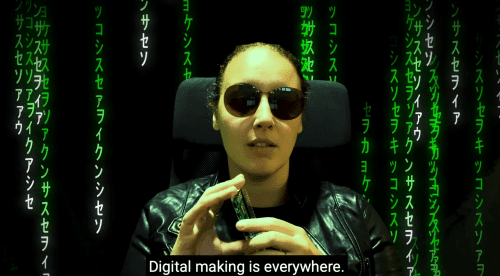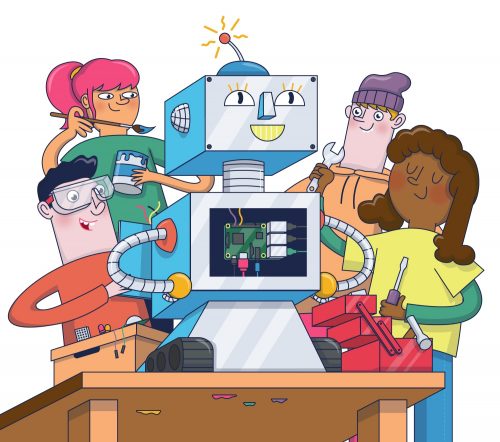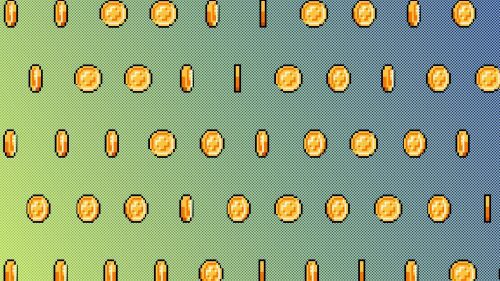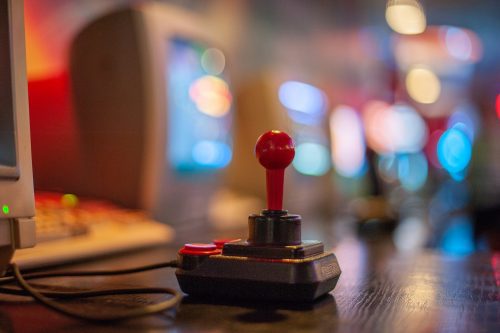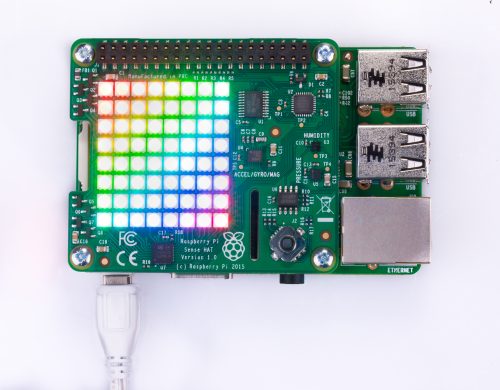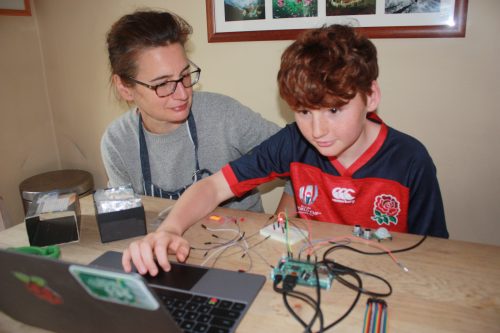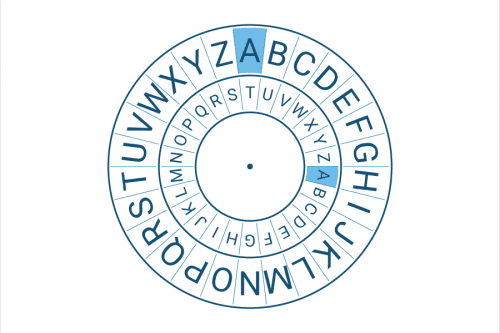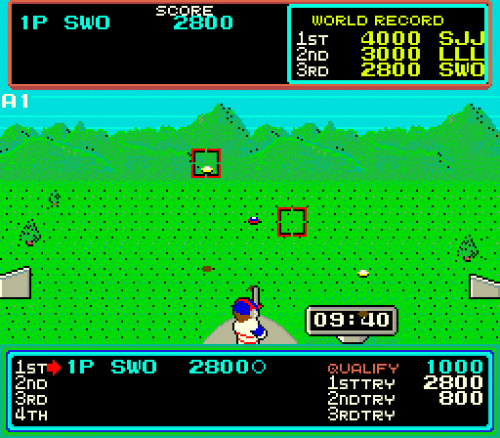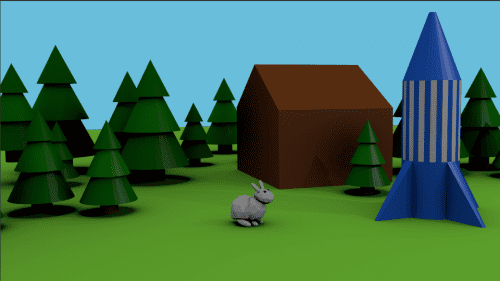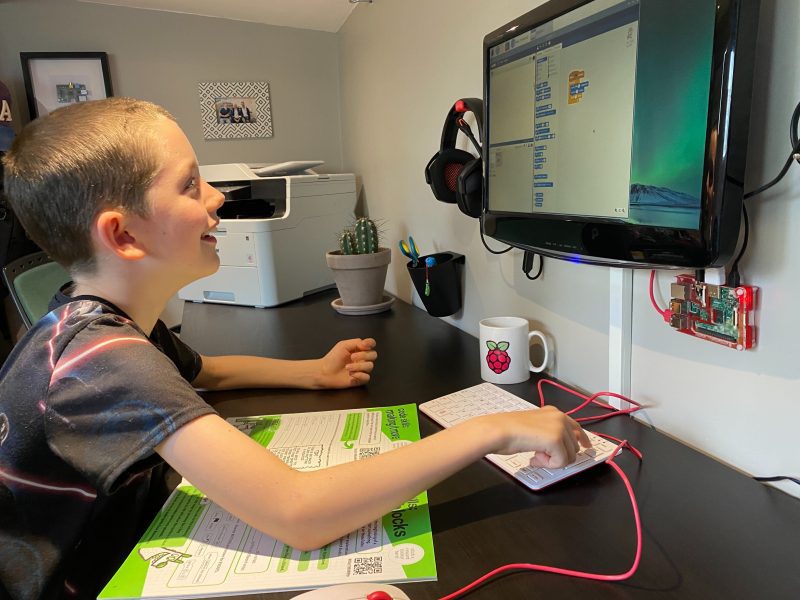Schlagwort: Digital Making at Home
-

A Raspberry Pi-powered platform for remote play experiences
Reading Time: 4 minutesBefore we meet Stan Dmitriev of Surrogate.tv on this week’s Digital Making at Home live stream, we decided to learn more about the platform so we can get excited ahead of time. Robots, cat lasers, consoles and more Surrogate.tv is a platform for remote play experiences. That’s where creators hook up things…
-

Celebrate Pi Day with us
Reading Time: 2 minutesSince launching our first-ever Pi Day fundraising campaign, we’ve been absolutely amazed by the generous support so many of you have shown for the young learners and creators in our community. Together, our Pi Day donors have stepped up to make an impact on over 20,000 learners (and counting!) who rely on…
-

100 Raspberry Pi moments
Reading Time: 4 minutesThe official Raspberry Pi magazine turned 100 this month! To celebrate, the greatest Raspberry Pi moments, achievements, and events that The MagPi magazine has ever featured came back for a special 100th issue. 100 Raspberry Pi Moments is a cracking bumper feature (starting on page 32 of issue 100, if you’d like…
-

Code a GUI live with Digital Making at Home
Reading Time: < 1 minute[youtube https://www.youtube.com/watch?v=gXKclDB9ajs?feature=oembed&w=500&h=281] This week, we’re introducing young people around the world to coding GUIs, or graphical user interfaces. Let them tune in this Wednesday at 5.30pm BST / 12.30pm EDT / 10.00pm IST for a fun live stream code-along session with Christina and special guest Martin! They’ll learn about GUIs, can…
-

Coding for concentration with Digital Making at Home
Reading Time: < 1 minute[youtube https://www.youtube.com/watch?v=M1GEG1v-YGQ?feature=oembed&w=500&h=281] September is wellness month at Digital Making at Home. Your young makers can code along with our educators every week to create projects that focus on their well-being. This week’s brand-new projects are all about helping young people concentrate better. Through Digital Making at Home, we invite parents and…
-

Explore well-being in September with Digital Making at Home
Reading Time: < 1 minute[youtube https://www.youtube.com/watch?v=5Eh1KN_lElg?feature=oembed&w=500&h=281] September is wellness month at Digital Making at Home. Your young makers can code along with our educators every week to create projects which focus on their well-being. This week’s brand new projects are all about embracing the things that make you feel calm. Go check them out! Through…
-

Coding for kids and parents with Digital Making at Home
Reading Time: 2 minutesThrough Digital Making at Home, we invite your and your kids all over the world to code and make along with us and our new videos every week. [youtube https://www.youtube.com/watch?v=GWVy0D-ZI08?feature=oembed&w=500&h=281] Since March, we’ve created over 20 weeks’ worth of themed code-along videos for families to have fun with and learn at home.…
-

Beginners’ coding for kids with Digital Making at Home
Reading Time: < 1 minuteHave your kids never coded before? Then out Digital Making at Home video this week is perfect for you to get them started. In our free code-along video this week, six-year-old Noah codes his first Scratch project guided by Marc from our team. The project is a digital stress ball, because…
-

Try web development with Digital Making at Home
Reading Time: < 1 minute[youtube https://www.youtube.com/watch?v=Q7bd0bLklAw?feature=oembed&w=500&h=281] Join us for Digital Making at Home: this week, young people can find out how to create web pages with us! Through Digital Making at Home, we invite kids all over the world to code and make along with us and our new videos every week. So get ready…
-

Build a Raspberry Pi robot buggy with your kids
Reading Time: < 1 minute[youtube https://www.youtube.com/watch?v=ZrxqaF1ZHOA?feature=oembed&w=500&h=281] Join us for Digital Making at Home: this week, young people can build a Raspberry Pi robot buggy with us! Through Digital Making at Home, we invite kids all over the world to code and make along with us and our new videos every week. So get your Raspberry…
-

Create a stop motion film with Digital Making at Home
Reading Time: < 1 minute[youtube https://www.youtube.com/watch?v=6EnwLPL_PzU?feature=oembed&w=500&h=281] Join us for Digital Making at Home: this week, young people can do stop motion and time-lapse animation with us! Through Digital Making at Home, we invite kids all over the world to code along with us and our new videos every week. So get your Raspberry Pi and…
-

Design game graphics with Digital Making at Home
Reading Time: < 1 minute[youtube https://www.youtube.com/watch?v=ehpeIuMlfvc?feature=oembed&w=500&h=281] Join us for Digital Making at Home: this week, young people can explore the graphics side of video game design! Through Digital Making at Home, we invite kids all over the world to code along with us and our new videos every week. So get ready to design video…
-

Code retro games with Digital Making at Home
Reading Time: < 1 minute[youtube https://www.youtube.com/watch?v=r–6fucA4ds?feature=oembed&w=500&h=281] Join us for Digital Making at Home: this week, young people can recreate classic* video games with us! Through Digital Making at Home, we invite kids all over the world to code along with us and our new videos every week. So get ready to code some classic retro…
-

Galactic coding with Digital Making at Home!
Reading Time: < 1 minute[youtube https://www.youtube.com/watch?v=nZ3rzMmhmt4?feature=oembed&w=500&h=281] Join us for Digital Making at Home: this week, young people can do out-of-this-world coding with our space-themed projects! Through Digital Making at Home, we invite kids all over the world to code along with us and our new videos every week. So get ready to do some galactic…
-

Let’s make it colourful with Digital Making at Home
Reading Time: < 1 minute[youtube https://www.youtube.com/watch?v=OOFlKcCEOvk?feature=oembed&w=500&h=281] Join us for Digital Making at Home: this week, young people can learn about using the Sense HAT — or its emulator — with us! With Digital Making at Home, we invite kids all over the world to code along with us and our new videos every week. So…
-

Learn at home #4: All about Scratch
Reading Time: 3 minutesThere’s no question that families have faced disruptions and tough challenges over the last few months. For the parents and carers who’ve been supporting their children with learning at home, it can feel overwhelming, stressful, rewarding — or all three! As many children are still carrying on with learning at home, we…
-

Let’s learn about encryption with Digital Making at Home!
Reading Time: < 1 minute[youtube https://www.youtube.com/watch?v=WVIFbA9DoJY?feature=oembed&w=500&h=281] Join us for Digital Making at Home: this week, young people can learn about encryption and e-safety with us! With Digital Making at Home, we invite kids all over the world to code along with us and our new videos every week. So get ready to decode a secret…
-

Let’s do virtual sports with Digital Making at Home!
Reading Time: < 1 minute[youtube https://www.youtube.com/watch?v=Sa6wkvXHGpc?feature=oembed&w=500&h=281] Join us for Digital Making at Home: this week, young people get to make sports games in Scratch! With Digital Making at Home, we invite kids all over the world to code along with us and our new videos every week. So get ready to exercise your digital making…
-

Let’s make it 3D with Digital Making at Home!
Reading Time: < 1 minute[youtube https://www.youtube.com/watch?v=7KVLeRhTerc?feature=oembed&w=500&h=281] Join us for Digital Making at Home, where this week, young people get to create all things 3D. With Digital Making at Home, we invite kids all over the world to code along with us and our new videos every week! So get ready to visit a new digital…
-

Let’s go out to sea with Digital Making at Home
Reading Time: < 1 minuteDigital Making at Home: Out at sea Subscribe to our YouTube channel: http://rpf.io/ytsub Help us reach a wider audience by translating our video content: http://rpf.io/yttranslate Buy a Raspbe… Join us for Digital Making at Home, where this week for World Oceans Day, the big blue sea is calling our names. With…
-

Learn at home #3: building resilience and problem solving skills
Reading Time: 5 minutesWith changes to school and work around the world, many parents and carers still aren’t sure what to expect over the next few weeks. While some children have returned to school, we know that many young people and families are still learning and working at home. We’re providing lots of free extra…
-

Learn at home: a guide for parents #2
Reading Time: 4 minutesWith millions of schools still in lockdown, parents have been telling us that they need help to support their children with learning computing at home. As well as providing loads of great content for young people, we’ve been working on support tutorials specifically for parents who want to understand and learn about…
